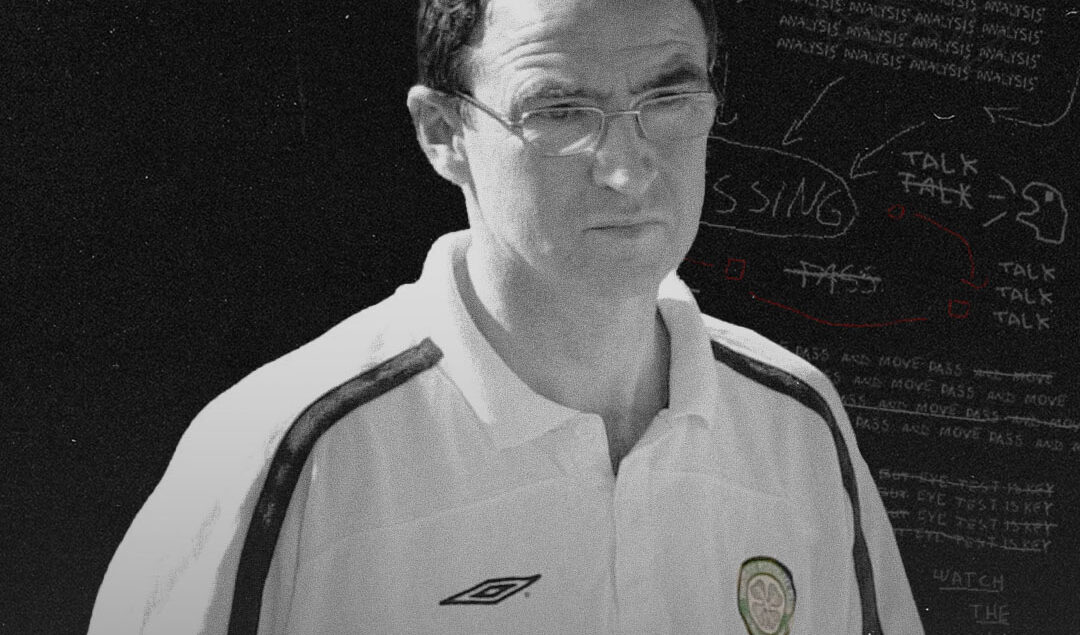The Legacy of Martin O’Neill at Celtic: The Architect of Unprecedented Success in the Modern Era
Martin O’Neill’s tenure as Celtic manager was a pivotal era in the club’s history, epitomised by a resurgence in domestic dominance in addition to memorable European campaigns in the UEFA Cup and the UEFA Champions League. In charge from 2000 to 2005, O’Neill’s natural aura brought leadership, renewed passion, success, and pride back to Celtic Park following the dreary era that saw John Barnes hired as the successor to Wim Jansen in the summer of 1999.
Following on from that fateful Barnes era, O’Neill inherited a club grappling with inconsistency and lagging behind arch-rivals Rangers. Thankfully for followers of Celtic, his arrival as manager signified a turning point that set the club on course to dominate the Scottish game for more than a decade to come.
The cornerstone achievement of the O’Neill era was in his first season as manager when he led Celtic to a historic domestic treble in his debut season at Celtic Park (2000-2001) as he clinched the Scottish Premier League title, the Scottish Cup, and the Scottish League Cup. This season of footballing perfection in terms of domestic football laid the foundation for an era of unprecedented success under his stewardship.
Strong man management skills have always been noted as the foundation to the success that he has had as a manager however, his ability in the transfer market was equally as vital. He managed to assemble a formidable squad with players who had a point to prove in their careers. The most notable example of this was Chris Sutton who was recruited from Chelsea for a fee of £6 million.
A previous Premier League winner and holder of the Golden Boot in 1994/95, Sutton joined Celtic off the back of the worst season of his professional career at Chelsea where his goal-scoring process seemed to desert him. As well as the signing of Sutton, he added former Leicester City lieutenant Neil Lennon to bolster a midfield that already included Champions League winner Paul Lambert and a squad that included the undoubted world-class talent of Henrik Larsson.
Those three signings were highly significant to Celtic’s resurgence and ongoing success in the years that followed. O’Neill instilled a winning mentality within the team, fostering a sense of camaraderie and unity that proved invaluable in their quest for silverware in Scotland.
He was able to produce even more than domestic success at Celtic as his impact extended beyond domestic triumphs and into the forays of European football. Under his management, Celtic had memorable European adventures, including an impressive run to the UEFA Cup Final in 2003 during which they defeated illustrious opponents such as Celta de Vigo and Liverpool to show that they were the real deal as a team in European competition.
Ultimately, Martin O’Neill’s legacy at Celtic is more than just the trophies that he won and the European runs that he took the club on. His legacy is one of continual and transformative success that had an enduring impact that his successor, Gordon Strachan, was able to continue his success when he took the job in the summer of 2005.
Northern Irish League Title Race Has All the Hallmarks of a Classic Race to the Wire
Strachan led Celtic to three league titles in a row and the last sixteen of the Champions League on two occasions before Neil Lennon, Ronnie Deila and Brendan Rodgers continued the legacy of winning and contributed to Celtic winning fourteen league titles since O’Neill left the club. In addition to those title successes post-O’Neill, Celtic have also won four domestic trebles – in addition to O’Neill’s in 2000/2001 – to break the world record of most domestic trebles won by a club (eight in total throughout the club’s history).
The sense of pride and identity that Martin O’Neill restored to Celtic Park following the dominance of Rangers in the 1990s make him one of the most influential managers in the history of Celtic Football Club and, in my mind, the architect of the modern Celtic Football Club that has dominated Scottish football since his arrival in the summer of 2000.
By: Callum McFadden / @Callum7McFadden
Featured Image: @GabFoligno / Ben Curtis – PA Images
